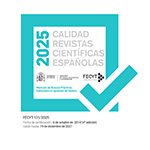"A crossroad of national processes". Nationalization and political violence in the basque country, 1937-1978
Abstract
In the 1960s and 1970s Basque and Spanish nationalizing projects overlapped in the Basque Country, with violence exerting a major role in both of them. Franco’s Dictatorship used violence as a prominent tool to promote policies of memory extolling the Civil War as the foundational myth of the “New State”. But when this bellicose patriotism started to wane Basque nationalism created its own version with a belligerent discourse accompanied by a call to arms. This raising nationalistic project had a first and symbolic stage dedicated to destroy the Spanish imaginary. It then, since 1968, evolved into a new and violent phase characterized by the killing of prominent individuals who symbolized that memory. That campaign of violence intensified during the transition to Democracy, helping us to understand why the abertzale memory followed a different path from that of the collective memories recalled to support Spain’s democratic transition.
Downloads
Article download
License
In order to support the global exchange of knowledge, the journal Cuadernos de Historia Contemporánea is allowing unrestricted access to its content as from its publication in this electronic edition, and as such it is an open-access journal. The originals published in this journal are the property of the Complutense University of Madrid and any reproduction thereof in full or in part must cite the source. All content is distributed under a Creative Commons Attribution 4.0 use and distribution licence (CC BY 4.0). This circumstance must be expressly stated in these terms where necessary. You can view the summary and the complete legal text of the licence.











